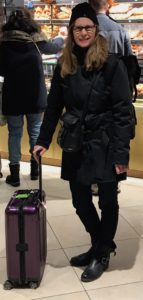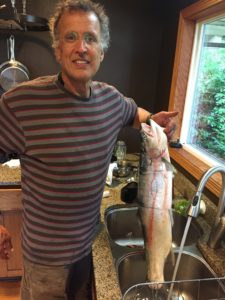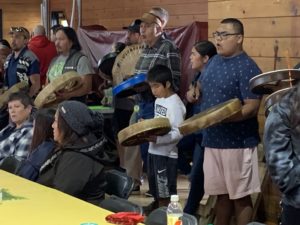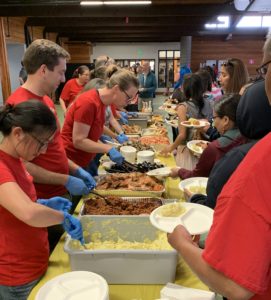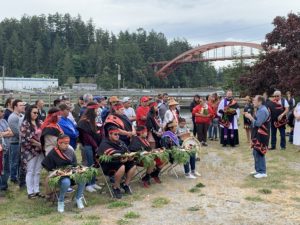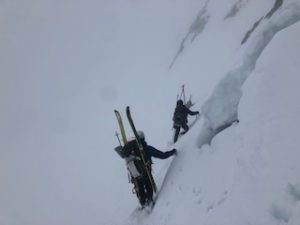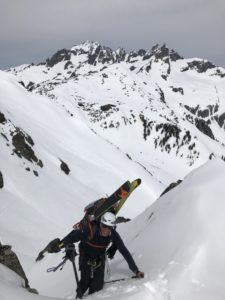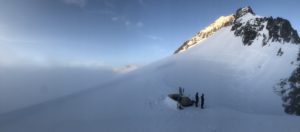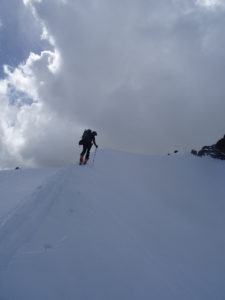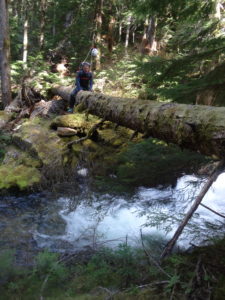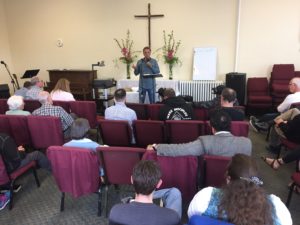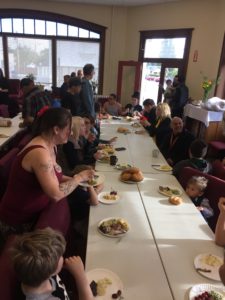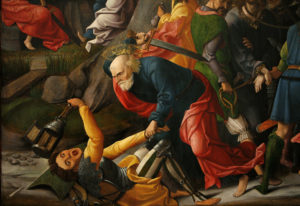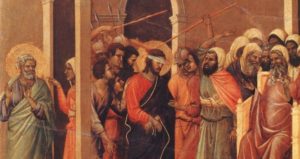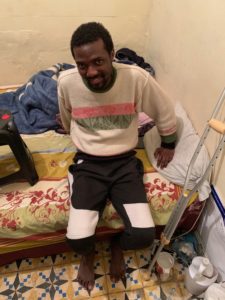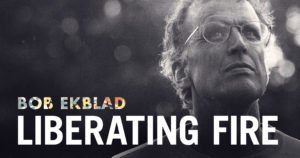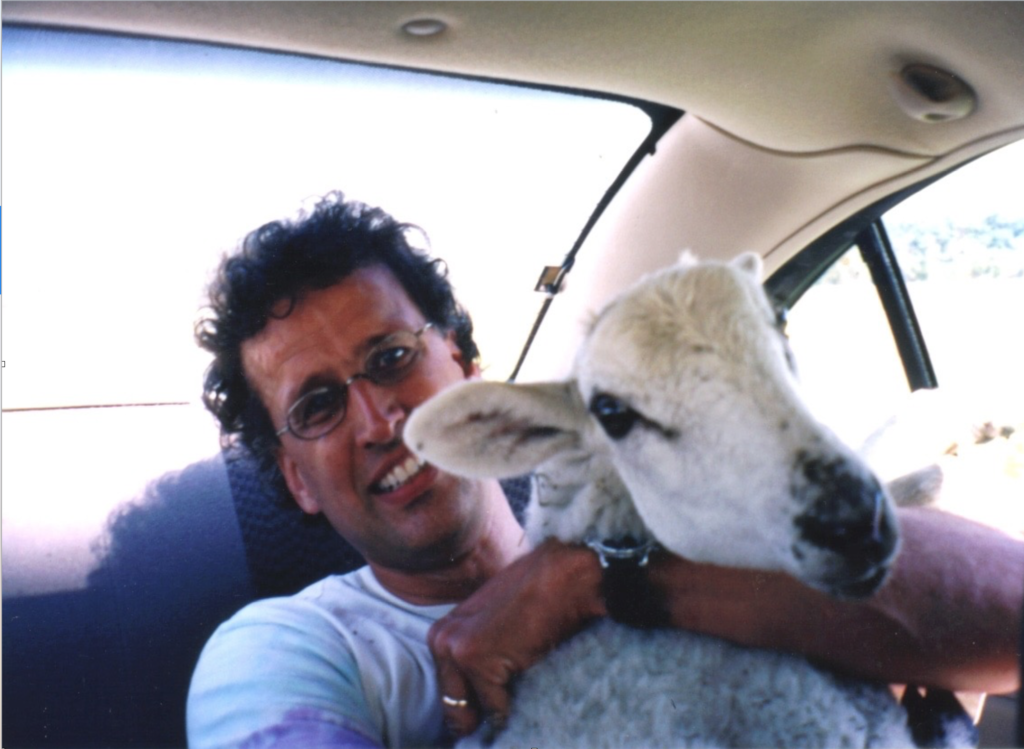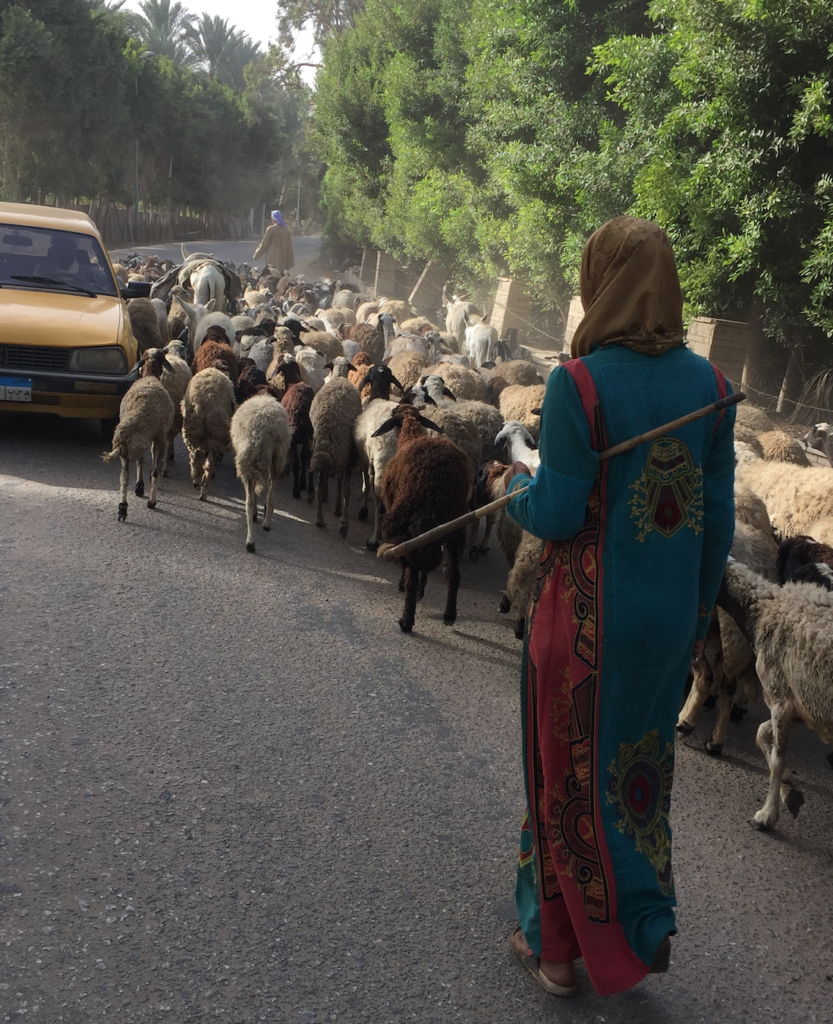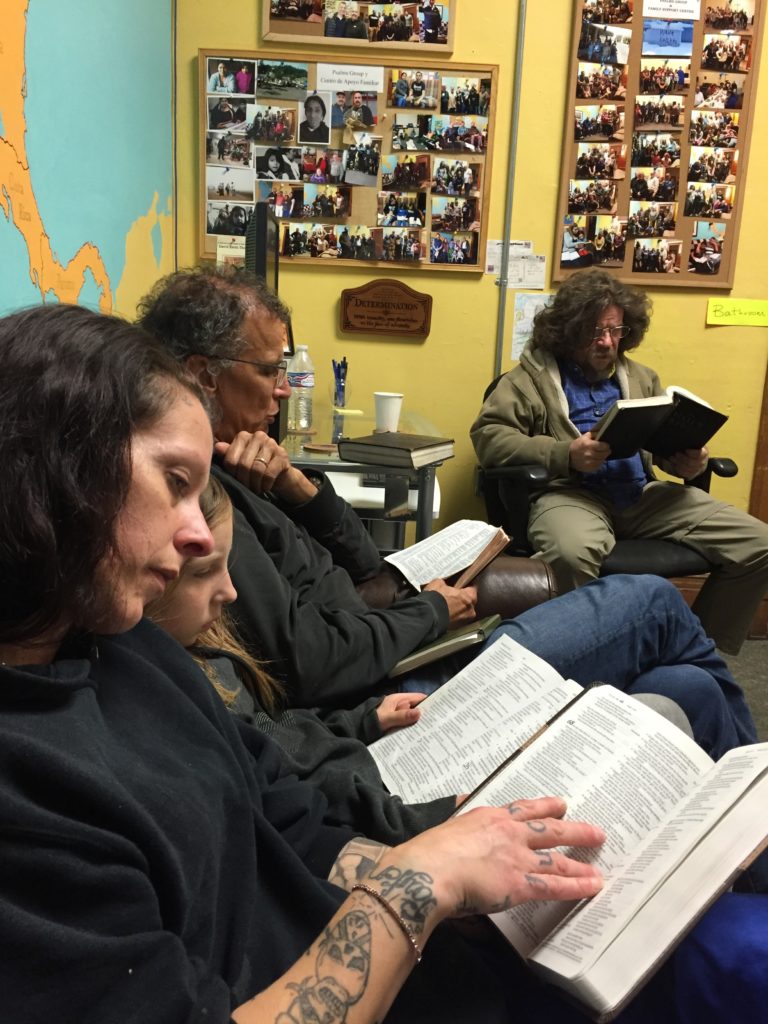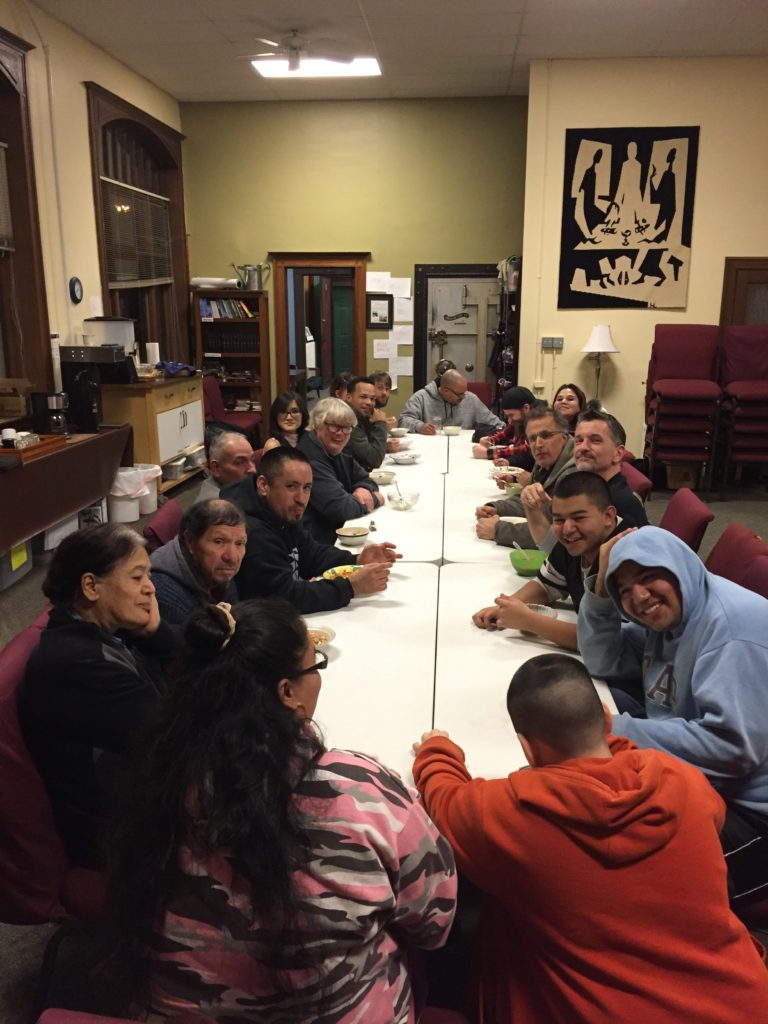On May 24 Gracie and I were making our way from the airport terminal gate down the jetway and onto the plane in Seattle, heading first to San Francisco and then on to New Zealand. We had all our stuff carefully packed into our fairly minimalist carry-on suitcases and backpacks. Gracie is a master packer, fitting an amazing assortment of remedies and the perfect apparel for New Zealand winter, in carry-ons.
A young woman in high heals was navigating the sloping entrance ramp down to the plane, guiding her carry-on with one hand, and precariously holding a big plastic bag bursting with whatever didn’t fit into her case in the other. Suddenly she tipped the bag and a shampoo bottle, lip stick and other toiletries tumbled out. Bottles rolled down the ramp towards the door of the plane, and she scrambled awkwardly in her heals to pick up the items. I tried to help, and once she’d managed to get everything back in her bag Gracie told her she could probably use a backpack.
“Yeah for sure,” she said, laughing.
“So where are you heading?” I asked as we boarded the plane.
“Vegas,” she said with a party voice.
“Wow,” I said. “What are you going to do there?” I asked.
“Party!” she said.
“Where are you going?” she asked me.
“New Zealand,” I said.
“Wow, New Zealand! So cool!” she said. “What are you going to do there?”
Now I had to figure out something simple to say that would hopefully make sense to her. The plane was crowded and we were nearing our seats.
“We’re going to offer some training to people who serve people in society who experience rejection and hardships of different kinds. We provide special support to those who reach out to people who often don’t feel welcomed in churches, like prisoners, the homeless, undocumented immigrants, people struggling with addictions, and marginalized youth,” I explained.
“Wow, that is so interesting!” she replied.
“How did you get invited there?” she asked.
In the moment I couldn’t remember how it first happened, and then I did.
“I think it happened because someone who works as a chaplain in the New Zealand prison system read my book Reading the Bible with the Damned,” I explained.
“Reading the Bible with the Damned?!” she exclaimed, eyebrows raised. You wrote a book? That sounds so interesting!”
“Well, we love to minister to people who are suffering in different ways, and help strengthen front-line workers serving people on the margins,” I said.
We found our seats, and the woman was in the row in front of Gracie, who had an aisle seat across from mine. After placing our things in the overhead bins the woman turned around and told us over the seat about how she had been suffering terribly the past year as her uncle had come into her family’s Vietnamese Restaurant, shooting and killing her two brothers and shooting her father in the legs. He had then killed himself while on the way to look for her, as the police were pursuing him.
It was time to buckle our seat belts for take off. We told her that if she had time in San Francisco before her next flight we would gladly pray for her. She said she’d really like that. We agreed to meet once we got off the plane. I then felt compelled to give her my book The Beautiful Gate, which she gratefully received.
Our plane took off and Gracie and I looked at each other in amazement. As we disembarked in San Francisco we lost track of the woman. We didn’t see her anywhere there at the gate, and assumed she’d gotten spooked, or for whatever reason, decided to skip the prayer. Then Gracie spotted her standing and waiting further down the terminal.
We approached her and asked her if she still wanted prayer.
“Yes I really do!” she said. “But I only have about 30 minutes before I need to get to my next flight.”
We found a quiet spot where there were a few chairs by one of the gates. She poured out her heart to us about her family tragedy. Her only siblings who she’d been very close to were dead, her father and mother were deeply traumatized, and had had to relocate and go into hiding in fear of her uncle’s family. She had loved her uncle, who had tutored her throughout her schooling. He’d turned against her family and then taken his own life.
She told us about her spiritual quest—which included plans to travel to Costa Rica for a New Age retreat involving taking Ayahuasca—a psychedelic drug used by indigenous Amazonian tribes. She hoped to start a holistic healing center in Hawaii.
But what she had done so far had not brought her the relief she was looking for. She sobbed and we ministered to her, praying for the Holy Spirit’s comfort.
She had rejected Christianity due to negative experiences in her brief involvement in a legalistic church. We told her about Jesus’ unconditional love for her and her family, and of his defeat of death. She shared about her battle with fear and deep sadness, and we told her how receiving God’s love through Jesus could strengthen her to drive out all fear.
She welcomed our words and we led her in prayers to receive God’s love and take a stand against fear. We prayed for the Holy Spirit to fill her. She said she felt a big weight lift off and a peace come over her.
We encouraged her to keep seeking the truth, and not settle for anything less than what would really bring true comfort and freedom from fear and despair. We told her about Jesus’ words: “Ask and you will receive. Seek and you will find. Knock and the door will be opened.” We affirmed her openness and desire to be involved in holistic healing. We encouraged her to recognize that she needs a strong remedy for the darkness that assails her and her family, and encouraged her to learn more about Jesus through reading the Gospels, and to consider asking Jesus for ongoing help. She received our words with an open heart that deeply moved us.
We exchanged emails and she hugged us before parting ways- she to Las Vegas and we to Auckland and on to Wellington.
This first encounter set the tone for our entire time in New Zealand, which was full of rich times of prayer for healing for people’s heart wounds and for freedom. We continue to pray for this woman and hope to stay in contact. We feel inspired to stay alert to any other assignments that may come our way as we travel through life. There’s nothing more exciting than participating in Jesus’ ministry.
Check out my Pentecost Sunday sermon: “Receiving Comfort from the Holy Spirit.”
